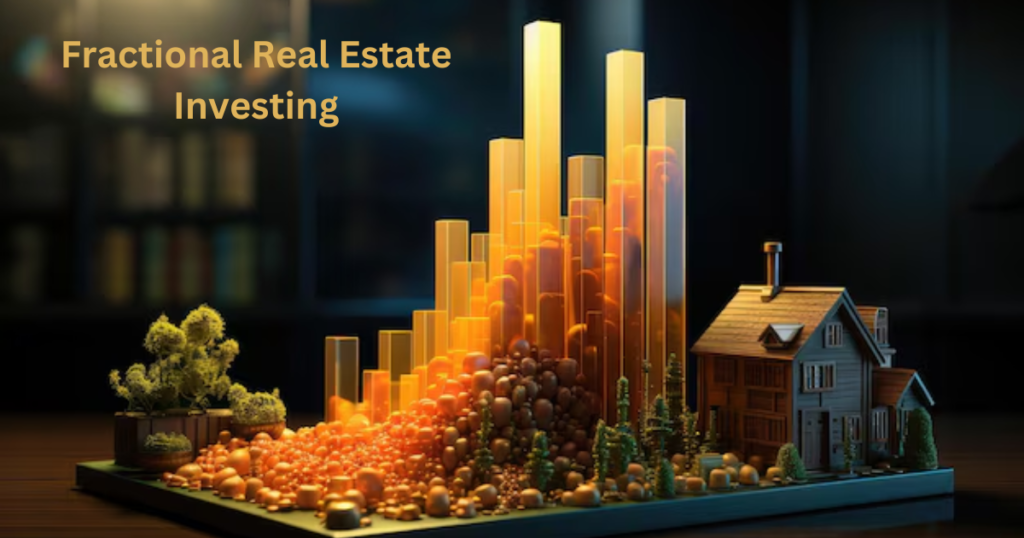Real estate has always been a great way to build wealth. But traditional property investment is expensive. However, fractional real estate investing is changing the game. It allows people to own a share of a property for a fraction of the cost. Now, anyone can become a property owner without needing massive savings. In this blog, we’ll explore everything you need to know about fractional real estate investing.

- What is Fractional Real Estate Investing?
- Why is Fractional Real Estate Investing Growing in Popularity?
- How Does Fractional Real Estate Investing Work?
- Benefits of Fractional Real Estate Investing
- Risks to Consider in Fractional Real Estate Investing
- How to Start Fractional Real Estate Investing
- How Much Can You Gain with Fractional Real Estate Investing?
- Real-Life Examples of Fractional Real Estate Investing Success
- Fractional Real Estate vs. REITs: What's the Difference?
- The Future of Real Estate Investing
- Conclusion: Is Real Estate Investing Right for You?
- Disclaimer
What is Fractional Real Estate Investing?
Fractional real estate investing means owning part of a property instead of the whole thing. Think of it like owning a slice of a big cake. You don’t need to buy the entire cake to enjoy it. With this method, you can purchase shares of a property along with other investors.
For example, if a property is worth $500,000, and you buy a 10% share, your investment is only $50,000. You become a part-owner of the property, and you share the profits, rental income, and any appreciation.
Why is Fractional Real Estate Investing Growing in Popularity?
The concept of fractional real estate is gaining attention, especially among younger investors. Many people are interested in real estate but can’t afford the high prices. Fractional investing solves this problem by lowering the cost of entry.
It also gives investors access to prime real estate that they wouldn’t be able to afford otherwise. You could own a portion of a luxury apartment in a big city or even a vacation home.
How Does Fractional Real Estate Investing Work?
Fractional ownership is usually managed by real estate platforms. These platforms find high-value properties and divide them into shares. As an investor, you can buy as many shares as you want. The platform handles the management of the property, including maintenance, tenant relations, and sales.
Here’s how it typically works:
- Choose a Property: You pick a property listed by the fractional investment platform.
- Buy Shares: You buy shares based on how much you want to invest.
- Earn Income: You earn a portion of rental income and property value appreciation.
- Exit Strategy: You can sell your shares either back to the platform or on a secondary market.
Benefits of Fractional Real Estate Investing
Fractional real estate investing has many advantages for those who want to own property for less. Below are some key benefits:
| Benefit | Description |
|---|---|
| Lower Cost | You can invest in real estate with much less money. |
| Diversification | Invest in multiple properties without needing large amounts of capital. |
| Passive Income | Earn rental income without having to manage the property yourself. |
| Access to Prime Real Estate | Own shares in high-value properties you couldn’t afford otherwise. |
| Flexibility | Choose how much to invest, whether it’s a small or large amount. |
| Easy Management | The platform manages everything for you, from maintenance to tenant issues. |
Risks to Consider in Fractional Real Estate Investing
While fractional real estate investing offers many benefits, it also comes with some risks. It’s essential to understand these risks before you invest.
- Limited Control: You do not have direct control over the property. Decisions like renovations or tenant selection are made by the platform.
- Liquidity Issues: It might not be easy to sell your shares when you want to. Some platforms have secondary markets, but the process could take time.
- Market Uncertainties: Real estate prices can move up and down. If the property’s value decreases, you could lose money on your investment.
- Fees: Management fees are charged by the platform, which can eat into your profits.
How to Start Fractional Real Estate Investing

If you’re ready to start fractional real estate investing, here are the steps to follow:
- Research Platforms: Look for reputable platforms that offer fractional real estate. Some well-known platforms include Fundrise, RealtyMogul, and Roofstock.
- Understand the Fees: Check the fees for buying shares, selling them, and property management. Each platform has its fee structure.
- Pick a Property: Choose properties that align with your investment goals. Some platforms offer residential, commercial, and even vacation properties.
- Buy Shares: Decide how much money you want to invest and purchase your shares.
- Monitor Your Investment: Keep an eye on your investment’s performance. Look for updates from the platform about rental income, property value changes, and maintenance.
How Much Can You Gain with Fractional Real Estate Investing?
Your earnings depend on the property’s rental income and appreciation in value. For example, if you own 10% of a property that earns $50,000 in rental income per year, you would get $5,000. If the property’s value increases by 10%, your investment grows too.
Real-Life Examples of Fractional Real Estate Investing Success
Many investors are already seeing great results from fractional real estate. Here’s a quote from an investor who benefited from fractional ownership:
“I wanted to invest in real estate but didn’t have enough for a down payment. With fractional real estate, I bought shares in a luxury apartment. It’s been a game-changer for me. I now earn rental income every month!” – Sarah, Fractional Investor.
Fractional Real Estate vs. REITs: What’s the Difference?
Many people confuse fractional real estate investing with Real Estate Investment Trusts (REITs). Both involve investing in real estate, but there are key differences.
| Feature | Fractional Real Estate Investing | REITs |
|---|---|---|
| Ownership | Direct ownership of a property share | Indirect ownership in a portfolio of properties |
| Control | More control over property selection | Less control, as REITs are managed funds |
| Returns | Rental income and appreciation | Dividends based on REIT performance |
| Liquidity | Less liquid, but some platforms have markets | Highly liquid, as REITs trade on exchanges |
The Future of Real Estate Investing
Fractional real estate investing is expected to grow rapidly in the coming years. As real estate prices continue to rise, more people will look for affordable ways to own property. Platforms offering fractional ownership will become more common, providing opportunities for investors worldwide.
Conclusion: Is Real Estate Investing Right for You?
Fractional real estate investing offers a unique opportunity to own property without breaking the bank. It’s a flexible, affordable, and accessible way to diversify your investments. However, like any investment, it comes with risks. Make sure to do your research and understand the potential downsides before diving in.
If you’ve always wanted to own property but felt held back by high costs, fractional real estate could be the solution you’ve been waiting for. With just a fraction of the cost, you can start building your real estate portfolio today!
Disclaimer
This article relies on internal data, publicly available information, and other reliable sources. It may also include the authors’ personal views. However, it’s essential to note that the information is for general, educational, and awareness purposes only—it doesn’t disclose every material fact. This analysis is for informational purposes only and does not constitute financial advice. Consult a professional before making investment decisions.
We publish information on World Virtual CFO in good faith, solely for general information. World Virtual CFO doesn’t guarantee the completeness, reliability, or accuracy of this information. These are our views for informational purposes. When you use our website, know that any action you take is entirely at your own risk. World Virtual CFO won’t be liable for any losses or damages connected to your use of our website. For detailed information, refer to our disclaimer page.
Dr. Dinesh Sharma is an award-winning CFO and AI strategist with over two decades of experience in financial leadership, digital transformation, and business optimization. As the founder of multiple niche platforms—including WorldVirtualCFO.com—he empowers professionals and organizations with strategic insights, system structuring, and innovative tools for sustainable growth. His blogs and e-books blend precision with vision, making complex financial and technological concepts accessible and actionable.